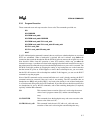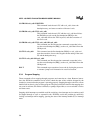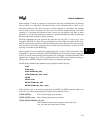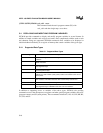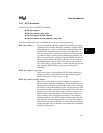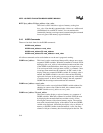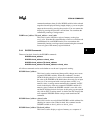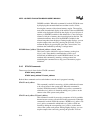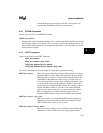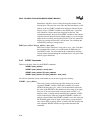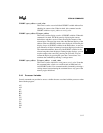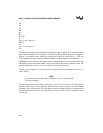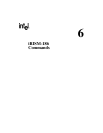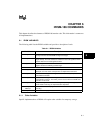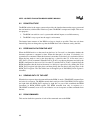
5-15
iECM-86 COMMANDS
5
resume the display by pressing the space bar a second time. You
terminate the command by entering a carriage return.
5.4.6 STRING Commands
There is only one form of the STRING command:
STRING byte_address
The line starts with a hexadecimal display of byte_address followed by the NUL-terminated
ASCII string starting at that address. For long strings, only the first 60 characters are dis-
played. When trailing characters are stripped, decimal points (.) are substituted for the first
three characters stripped.
5.4.7 PORT Commands
There are four forms for the PORT command:
PORT
port_address
PORT
port_address
=
byte_value
PORT
port_address
TO
port_address
PORT
port_address
TO
port_address
=
byte_value
All of these commands can be used whether or not the user’s program is running.
PORT port_address This form is used to examine and then possibly change one or more
sequential PORT variables. When this command is invoked, iECM-
86 displays the port_address in hexadecimal notation and the value
of the PORT in the default base, then waits for an input from you.
You can respond with a carriage return, an ESC, or a numeric value.
A carriage return terminates the command. An ESC results in the
display of the next sequential PORT variable. If a numeric value is
entered, the PORT variable is set to this value and the iECM-86
again waits for input. At this point, you can respond only with an
ESC or carriage return. As before, the ESC displays the next
sequential PORT and the carriage return terminates the command.
PORT port_address = byte_value
This form is used to set an individual PORT variable without first
checking its current value. When invoked, this command sets the
PORT variable at port_address to byte_value.
PORT port_address TO port_address
This form is used to display a series of PORT variables. When this
command is invoked, iECM-86 starts by displaying the current



